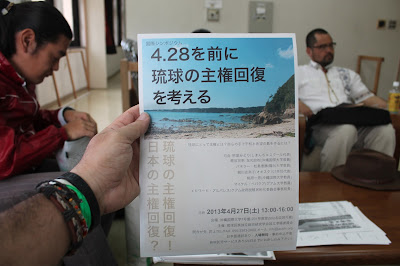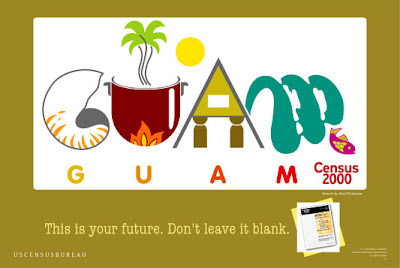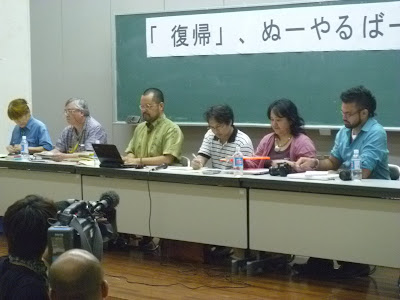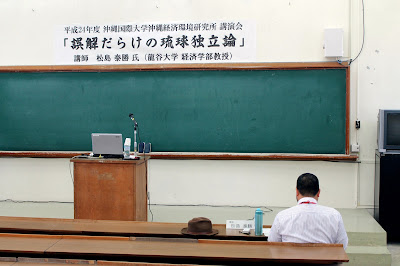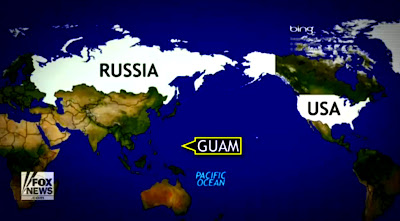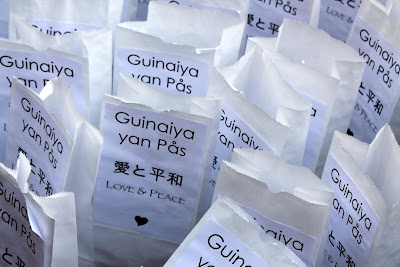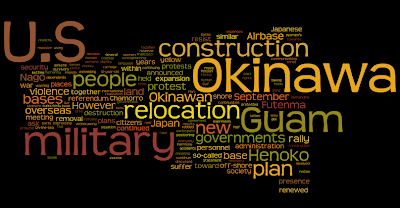Governor Ota
Here is a quote from former Okinawa Governor Masahide Ota. --> If men such as this, who have this type of vision can be elected for office anywhere, then it means there is hope for mankind. His vision of peace is both realistic and ideal. The way that he acknowledges that taking the route of peace may mean less money for Okinawa, but that the life you would lead would be worth the tradeoff is inspiring. He is not someone who dreams of peace to dream because they are dissatisfied with the world around them. He dreams of peace in order to change his society and change the world around him. What can Okinawa be proud of? If Okinawa can boast of one thing to other prefectures it is our strong desire for peace. In Okinawa there is a saying that we have passed down for generations: You can sleep well if you are hurt by others, but if you hurt someone you cannot sleep. When you have military bases on your land, even if you yourself are not harmed, US soldiers go to other coun...
